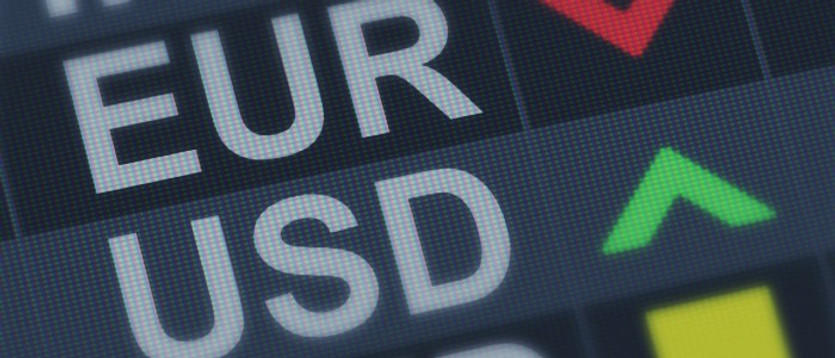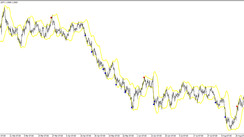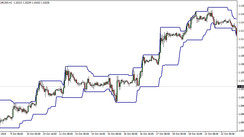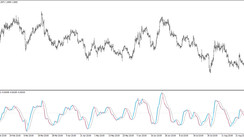The euro strengthened and the EUR / USD rose at the start of today's European session. Positive macro data from Europe supported the euro and EUR / USD, which have declined significantly this month. As reported this morning in Markit Economics, the preliminary composite purchasing managers index (PMI) of the Eurozone in November rose to a high in two months 55.8 (from 54.2 in October and against the forecast of 53.2). According to this data, the growth of the Eurozone economy accelerated in November. A result above 50 indicates an acceleration of business activity and an improvement in the situation in the economy. Nevertheless, the data presented once again indicate the instability of the recovery of the European economy. This is evidenced, in particular, by the latest statistics with the data of the composite purchasing managers index (PMI) of the Eurozone for previous months: 54.2, 56.2, 59.0, 60.2, 59.5, 57.1, 53, 8, 53.2, 62.5, 48.8, 47.8, 49.1, 45.3.
Although the presented data still indicate that the momentum of the economic recovery in the region is preserved, given the high likelihood of introducing new restrictive measures in connection with the Covid-19, one can hardly expect a sustainable improvement in the situation, economists say. In their view, the service sector will be hit hardest if lockdowns resume, while the manufacturing sector continues to be negatively impacted by supply problems. Governments in some countries, including Germany, have already begun tightening anti-covid restrictions, while persistent supply chain problems and rising Covid-19 cases darken the short-term outlook.
On the other hand, economists suggest that business activity will be constrained by quarantine measures, and companies will shift rising costs onto consumers, which means that core inflation will experience upward pressure in the coming months. In this regard, some economists suggest that later next year the euro will stabilize and may begin to recover if the ECB begins to take measures to contain inflation. In particular, the Bundesbank warned that inflation in Germany will soon reach 6%, which will require government intervention in monetary policy.
But for now, the European Central Bank prefers to adhere to a wait and see attitude, despite the threat of rising inflation: the region's economy continues to slow down, and the epidemiological situation is deteriorating again. Thus, the data presented yesterday on the level of consumer confidence in the Eurozone turned out to be worse than economists' expectations (-5.5 points): the index in November fell from -4.8 to -6.8.
Thus, we can hardly expect any significant strengthening of the euro and the growth of EUR / USD in the near future. Even the positive macro data presented this morning managed to provide the euro with only short-term support so far. So, while this article was being prepared, the EUR / USD pair has already managed to fall by 20 points, from the intraday high of 1.1275 reached at the very beginning of the European session, while the dollar strengthening is gaining momentum.
The dollar receives additional support from the news of Jerome Powell's nomination for a second term as chairman of the Federal Reserve System, which has strengthened market expectations of a rise in interest rates next year. Yesterday it became known that US President Joe Biden has appointed the incumbent Fed Chairman Powell for a second term, and Lael Brainard took over as vice-chairman.
As of this writing, DXY dollar futures are traded near 96.48, just below yesterday's new 16-month high of 96.56, with potential for further gains.
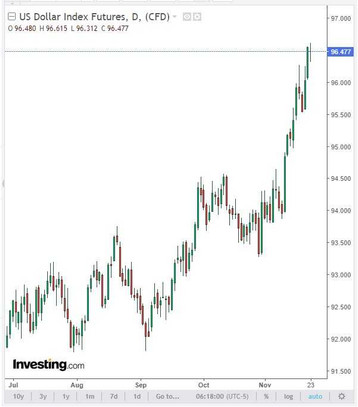
Today, market participants expect the publication (at 14:45 GMT) of statistics on the level of business activity in the manufacturing and services sectors in the United States. Further growth in PMI is expected, which should provide additional support to the dollar.
US President Biden will deliver a speech later in the evening. If he makes unexpected statements, the volatility in the financial markets will rise again.

